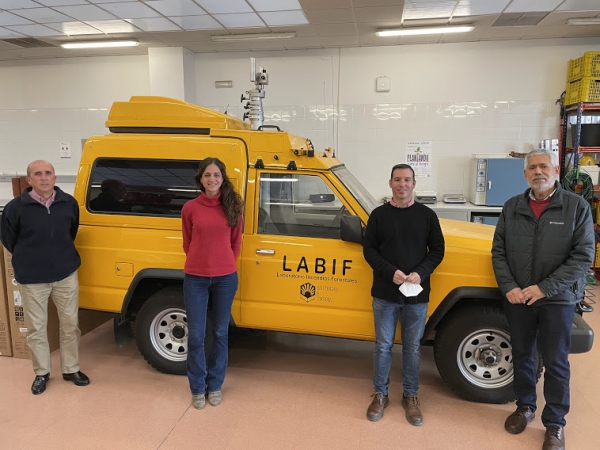A research group at the University of Córdoba is working on the generation of a methodology to predict how many euros per hectare are lost as a result of a given forest fire. The losses are determined by calculating the impact of the fire on tangible and intangible natural resources.
This study is part of the European FirEUrisk project, in which the UCO is participating together with a dozen European partners coordinated by the University of Coimbra (Portugal). The effort aims to develop methodologies to study the risk conditions of forest fires in the territory, and came about after detecting how difficult the extinction of forest fires is due to the abandonment of many rural areas, along with climate change.
In response to this situation, "the EU launched FirEUrisk to develop tools, based on scientific knowledge, making it possible to classify a territory based on its vulnerability to fire," explained the coordinator of the project at the UCO, Juan Ramón Molina Martínez.
For the study, five pilot areas were defined: in the centre of Portugal, in the province of Barcelona, in Central Europe, Sweden, and in Attica, Greece. In these areas all possible data will be collected on the problems of fires in terms of their recurrence, the firefighting risks in the territory, the causes of fire, the role of vegetation, and the evaluation of economic losses. The latter is the responsibility of the UCO, whose work will be based on the generation of a model to predict the euros per hectare that are lost as a result of a given fire due its impact on natural resources that are marketed, such as wood, fruit, grass, etc... plus newly incorporated resources, also called 'ecosystem services,' which include the landscape, leisure and recreation, carbon fixation, and biodiversity, which are not items for sale, like the previous ones.
The methodology developed by UCO researcher Macarena Ortega, together with researchers Miguel Ángel Herrera and Juan Ramón Molina, will yield a map of losses with which to set priorities when making investments. "With this tool, government entities are provided with information to make decisions when it comes to allocating more or fewer economic resources to some areas or others," said Molina, who added that these methods will be provided in online and Web format to facilitate their usage.
Another of the Cordoban team's tasks will be to evaluate the difficulty of putting forest fires out in a given area. This work is already being implemented in the Sierra Morena range, with a view to implementing it very soon in the five pilot areas set out in the project.
This project has received funding from the European Union's Horizon 2020 research and innovation programme under grant agreement No. 101003890


